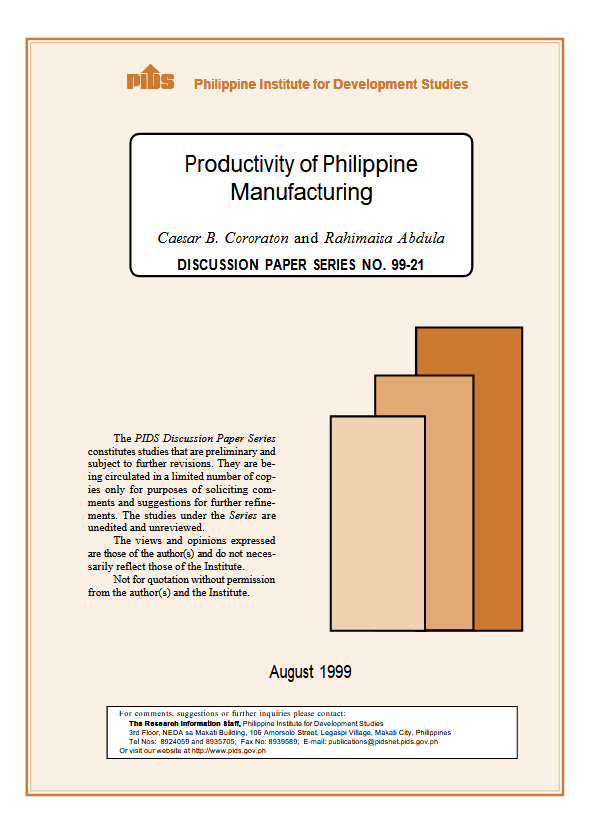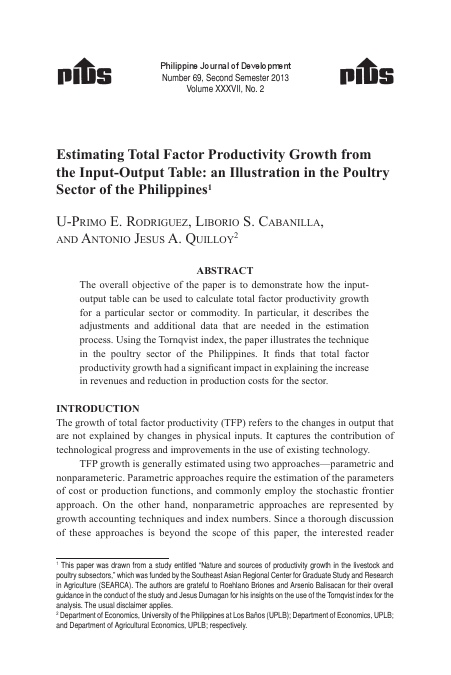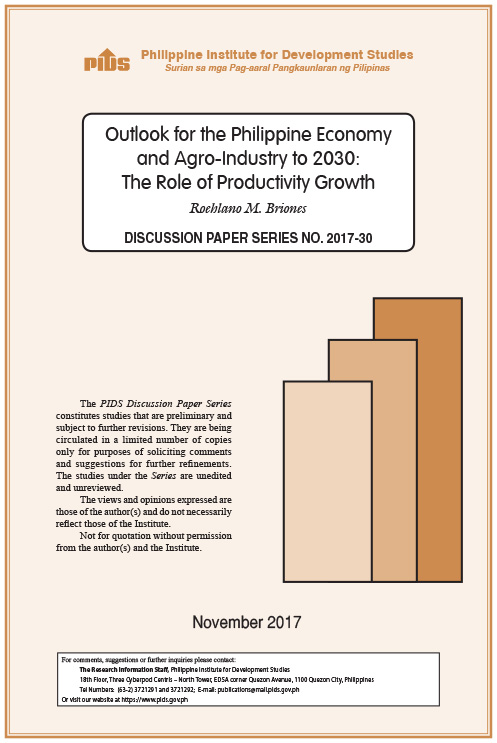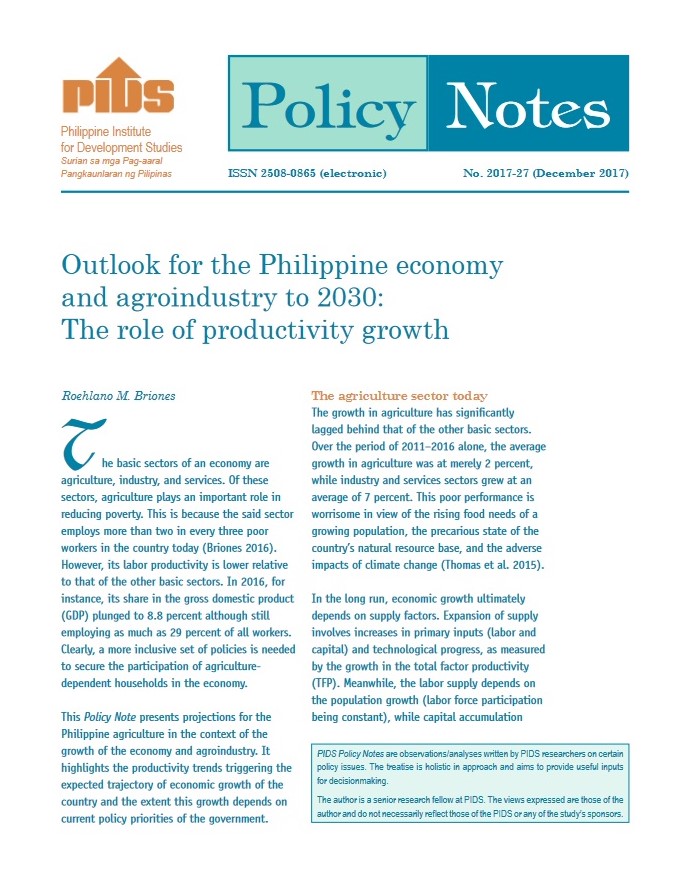The Philippine economic growth has been highly unstable in the last 20 years. From an erratic pattern, it has recovered in the early 1990’s. Whether this growth momentum is sustainable especially in the light of the recent financial crisis depends heavily on the strengthening of factors deemed to cause economic fluctuations: unstable macroeconomic environment, persistent dualism in the production sector and decline in productivity. Focusing on the latter, the paper estimates the total factor productivity of 23 manufacturing industries using the tradition growth approach from 1985-1991 and the technical efficiency coefficients of selected 5-digit industries for the same period. Determinants of TFP are analyzed via regression. Policy implications associated with the findings are documented.
Citations
This publication has been cited 4 times
- Austria, Myrna S.. 2000. Philippine productivity performance in the 1990s: An assessment. Discussion Papers DP 2000-28. Philippine Institute for Development Studies.
- Bjorvatn, Kjetil, Hans Jarle Kind, and Hildegunn Kyvik Nordås. 2002. The role of FDI in economic development. Nordic Journal of Political Economy, 28, 109-126. Nordic Journal of Political Economy.
- Llanto, Gilberto. 2012. Philippine productivity dynamics in the last five decades and determinants of total factor productivity. Discussion Papers DP 2012-11. Philippine Institute for Development Studies.
- World Bank. 2000. Philippines - growth with equity: The remaining agenda - a world bank social and structural review. World Bank Publications - Reports 15142. The World Bank Group.













